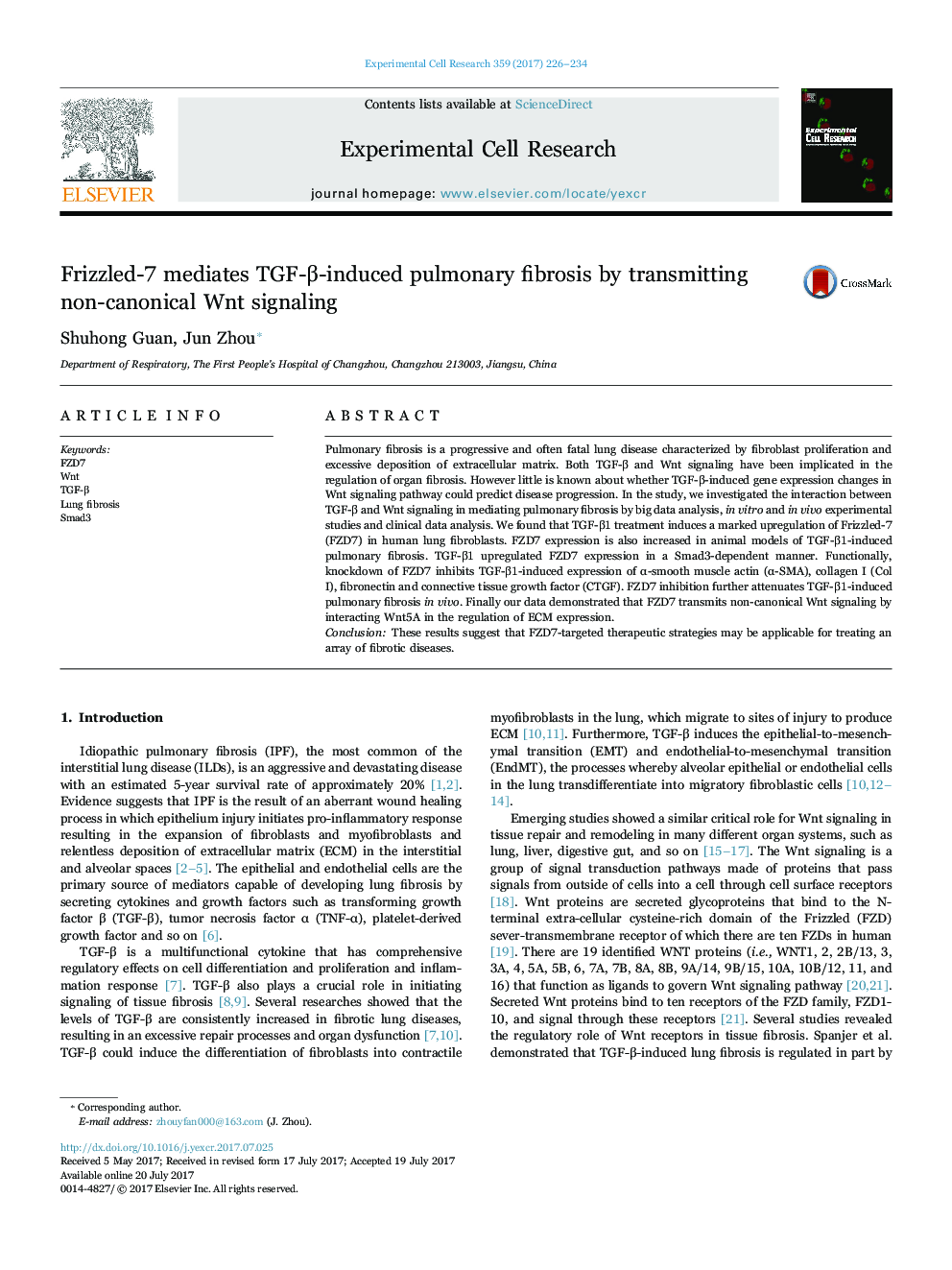| Article ID | Journal | Published Year | Pages | File Type |
|---|---|---|---|---|
| 5527064 | Experimental Cell Research | 2017 | 9 Pages |
â¢TGF-β1 treatment induces a marked upregulation of FZD7.â¢TGF-β1 upregulated FZD7 expression in a Smad3-dependent manner.â¢FZD7 regulates TGF-β1-induced expression of α-SMA, Col I, fibronectin and CTGF.â¢FZD7 inhibition attenuates TGF-β1-induced pulmonary fibrosis in vivo.â¢FZD7 transmits non-canonical Wnt signaling by interacting Wnt5A.
Pulmonary fibrosis is a progressive and often fatal lung disease characterized by fibroblast proliferation and excessive deposition of extracellular matrix. Both TGF-β and Wnt signaling have been implicated in the regulation of organ fibrosis. However little is known about whether TGF-β-induced gene expression changes in Wnt signaling pathway could predict disease progression. In the study, we investigated the interaction between TGF-β and Wnt signaling in mediating pulmonary fibrosis by big data analysis, in vitro and in vivo experimental studies and clinical data analysis. We found that TGF-β1 treatment induces a marked upregulation of Frizzled-7 (FZD7) in human lung fibroblasts. FZD7 expression is also increased in animal models of TGF-β1-induced pulmonary fibrosis. TGF-β1 upregulated FZD7 expression in a Smad3-dependent manner. Functionally, knockdown of FZD7 inhibits TGF-β1-induced expression of α-smooth muscle actin (α-SMA), collagen I (Col I), fibronectin and connective tissue growth factor (CTGF). FZD7 inhibition further attenuates TGF-β1-induced pulmonary fibrosis in vivo. Finally our data demonstrated that FZD7 transmits non-canonical Wnt signaling by interacting Wnt5A in the regulation of ECM expression.ConclusionThese results suggest that FZD7-targeted therapeutic strategies may be applicable for treating an array of fibrotic diseases.
